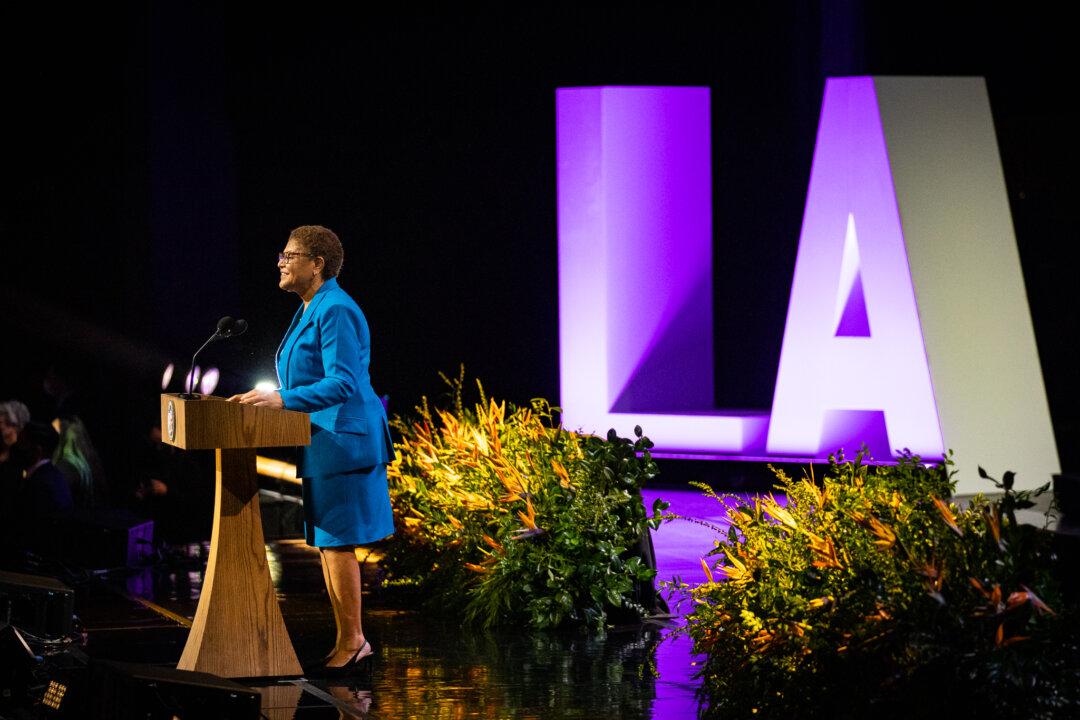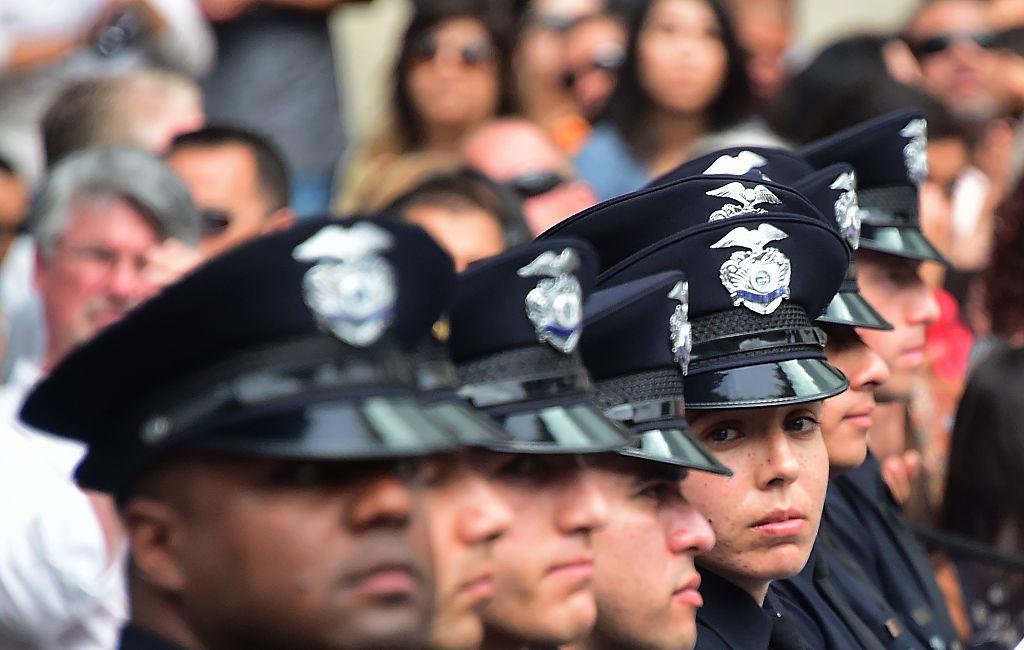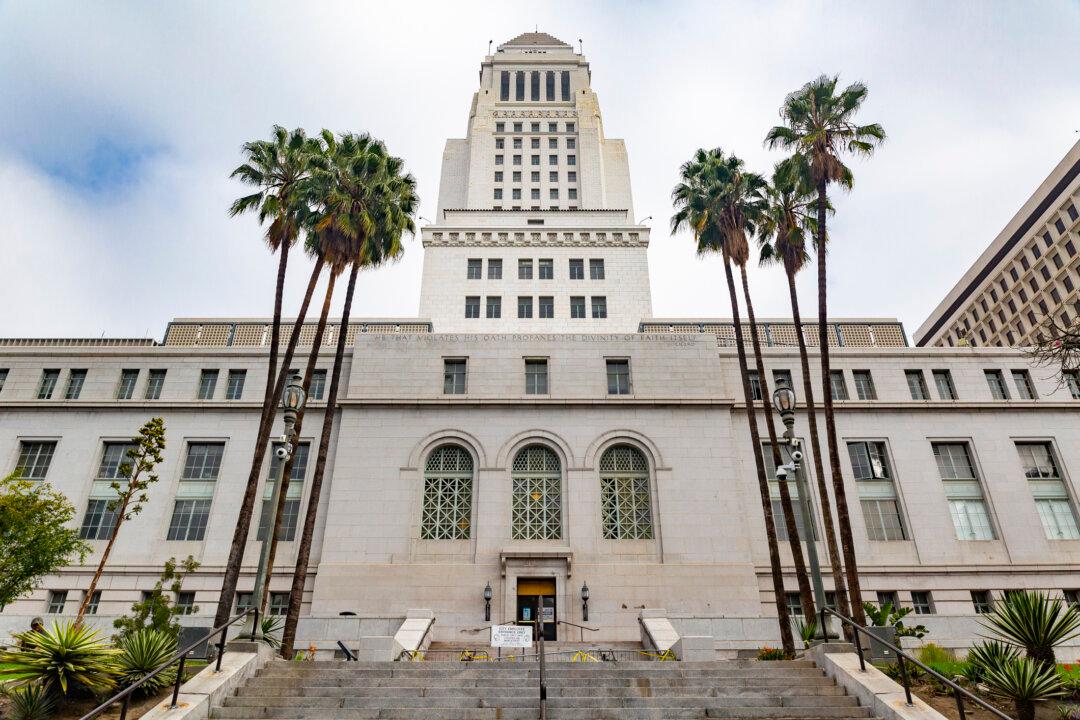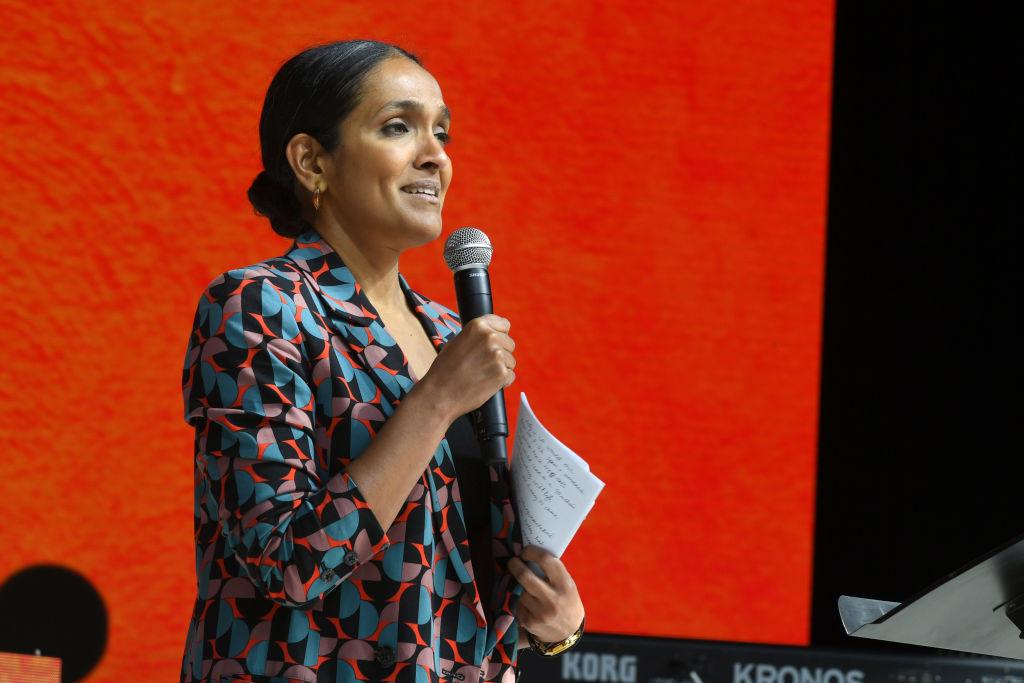Los Angeles Mayor Karen Bass unveiled her $13 billion budget proposal for 2023–2024 on April 18, the first of her tenure.
The budget prioritizes the city’s sprawling homelessness problem with a record-high $1.3 billion allocated for more housing, purchasing hotels and motels, substance abuse treatment beds, and establishing a new agency of homeless solutions in her office. The new fiscal year begins on July 1.





